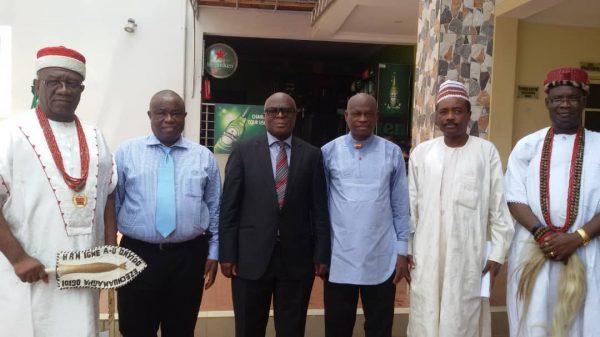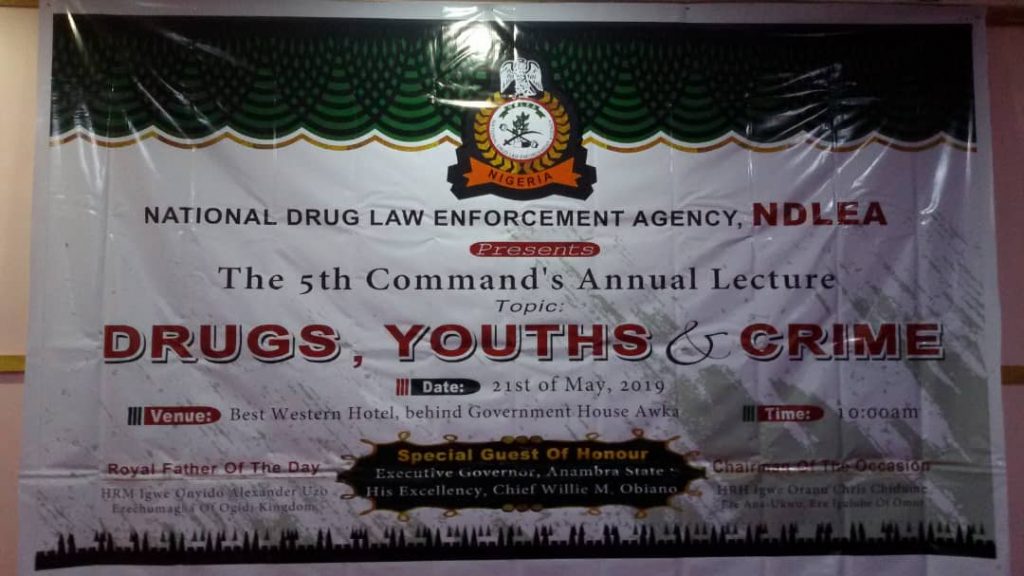The need for all hands to be on deck in the fight against illicit drugs has been stressed.
This formed the crux of discourse at the Fifth Annual Lecture of the Anambra State Command of the National Drug Law Enforcement Agency, NDLEA where participants called for concerted efforts towards reducing illicit drugs in the state.
The fifth annual lecture titled “drugs, youths and crime” was an opportunity for stakeholders to brain storm on the way forward.

Governor Willie Obiano in his speech, reechoed his stance on zero tolerance to crime and assured that his administration would strategize action to make drugs inaccessible to youths and ensure that the merchants are prosecuted.
The Governor, who was represented by the State Head of Service, Barrister Harry Uduh, charged communities , religious and political leaders to contribute their quota in the fight against drug abuse.
In his welcome address, the State Commander of NDLEA, Mr. Sule Momodu, who described Governor Obiano as the engine house in the fight against illicit drugs in the state, said the availability of drugs to youths increase their vulnerability to crime.
He charged communities to assist the Agency through dissemination of information.

Delivering a lecture on the theme, the Assistant Director of Training, National Drug Law Enforcement Agency, Barrister Abdul Momodu, said the consequences of illicit drugs, crime and violence are highly demanding as members of the family, neighborhood and communities have to live in the midst of the illicit drug markers.
He posited that studies have shown a relationship between drug abuse and other criminal offences including violent crimes.
The Royal Father of the day and the traditional ruler of Ogidi, Pharmacist Alexander Onyido called for establishment of industries instead of high rise buildings as the solution to unemployment in the
country which he said is the bane of drug abuse, while his Omor counterpart, who was the chairman on the occasion Igwe Chris Chidume, challenged parents to live up to their responsibilities in the training of their children.





Comments are closed for this post.